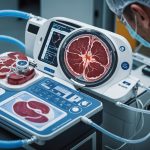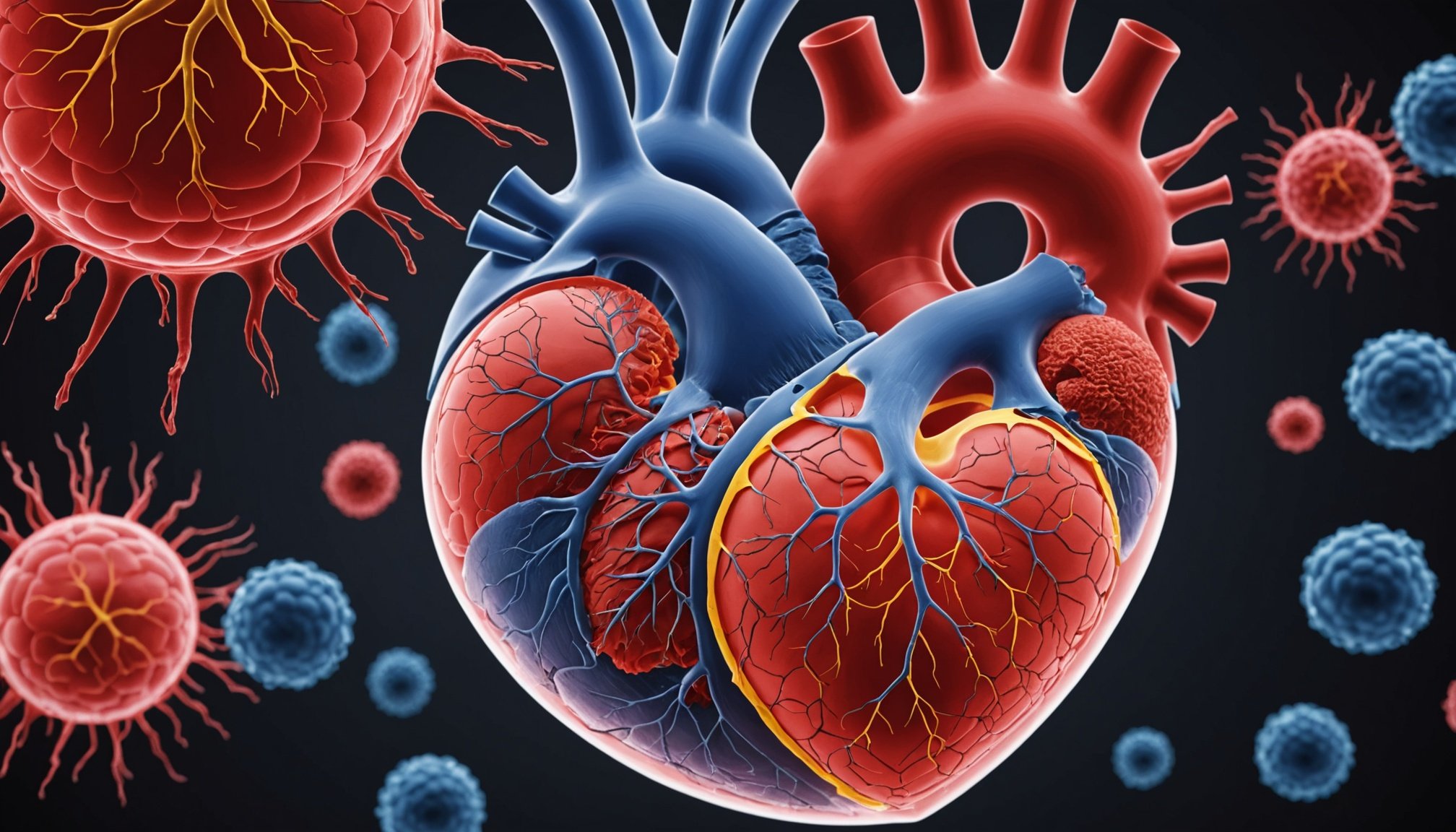Overview of Stem Cell Therapy in Cardiovascular Medicine
Stem cell therapy has emerged as a promising approach in heart regeneration, offering potential solutions for cardiovascular diseases. This therapeutic method involves the use of stem cells to regenerate damaged heart tissues, aiming to improve heart function and patient outcomes. Its significance stems from its ability to address conditions for which there are limited current treatment options.
Historically, stem cell applications in cardiology have seen considerable evolution. Initially, research focused on understanding the basic capabilities of stem cells. Over time, advancements have enabled the manipulation and enhancement of these cells to improve their regenerative potential in the heart. This historical backdrop highlights the journey from basic research to developing effective cardiovascular therapies.
This might interest you : Discover Cutting-Edge Pain Relief Strategies for Rheumatoid Arthritis Patients
Several types of stem cells are employed for heart tissue regeneration, each with unique properties and capabilities. Embryonic stem cells and induced pluripotent stem cells are noted for their high differentiation potential, offering the ability to transform into various cell types needed for heart repair. Additionally, mesenchymal stem cells are commonly used due to their ability to modulate inflammation and aid in tissue repair. Understanding these diverse applications provides insight into the robust capabilities of stem cell therapy in supporting cardiovascular health.
Recent Advances in Stem Cell Research for Heart Tissue Regeneration
Recent years have seen notable advancements in heart regeneration breakthroughs within the realm of stem cell research. Key clinical trials have ushered in significant developments, such as those focusing on innovative cell manipulation techniques. These methods enhance the potency of stem cells, allowing for more effective integration into damaged heart tissues. By refining cell preparation processes, researchers can achieve greater precision in targeting areas requiring regeneration.
This might interest you : Revolutionary Breakthroughs in Non-Invasive Cancer Screening: Discover the Latest Innovations
Recent studies have demonstrated various cutting-edge approaches. For instance, some research teams successfully improved heart function by harnessing the latest stem cell research insights and engineering these cells to express specific growth factors. This modification optimizes the cells’ capability to repair heart tissues.
Innovations in sourcing are equally noteworthy, particularly those concerning the safety and availability of cells. New techniques explore derivation from peripheral blood, which is less invasive compared to traditional biopsy methods. Breakthroughs in cultivation methods have improved stem cell viability, reducing the possibility of rejection and enhancing patient outcomes in heart tissue regeneration.
The field of stem cell research in cardiology continues to evolve, providing hope for effective treatments and improved cardiovascular health. By building upon these recent successes, the potential for transformative heart care through stem cells grows ever closer.
Mechanisms of Action for Stem Cell Therapy in Heart Tissue Repair
Stem cell therapy’s effectiveness in heart regeneration hinges on several important mechanisms. Understanding these mechanisms provides insight into the complexities of heart tissue repair facilitated by stem cells.
Mechanism of Differentiation
Stem cells can differentiate into cardiomyocytes, the essential cells required for heart function. This differentiation occurs through signalling pathways that guide stem cells toward becoming heart cells. When transplanted, these stem cells integrate seamlessly with the existing heart tissue, contributing to rebuilding the damaged areas.
Paracrine Effects
Aside from differentiation, paracrine signalling plays a crucial role. Stem cells release growth factors and cytokines into the surrounding environment, promoting heart tissue recovery. These secreted factors have been shown to enhance blood vessel formation, thereby improving nutrient and oxygen supply to compromised heart tissues.
Immunomodulatory Properties
Moreover, stem cells possess immunomodulatory properties that aid in heart regeneration. They are capable of modulating the immune response, reducing inflammation that typically occurs after heart damage. This aspect not only helps in healing the heart but also protects it from additional injury, enhancing the therapeutic outcomes of stem cell therapy in heart repair.
Case Studies and Clinical Applications
Stem cell therapy’s real-world applications have seen remarkable success stories in heart regeneration. Notable case studies illustrate the transformative potential of this approach in cardiac health care. For instance, a study following patients treated with stem cells post-heart attack recorded significant improvements in cardiac function, with enhanced blood flow and reduced damage.
These success stories are not isolated; they form part of a broader trend within ongoing clinical trials. Trials often aim to redefine cardiac care by integrating stem cell therapies with existing treatment protocols. Their focus is on boosting the heart’s regenerative capabilities, thus improving overall patient outcomes.
Current studies reveal promising patient outcomes. Stem cell therapies show a reduction in heart failure symptoms and improved quality of life. This has spurred continued research, fuelling excitement about future treatment possibilities.
Summarising current progress, several ongoing clinical trials explore novel treatment protocols. These trials assess various stem cell types and delivery methods, seeking to optimise therapeutic benefits while minimising risks. As these protocols advance, they hold the promise of making stem cell therapy an integral part of standard heart care practices.
Challenges and Limitations of Stem Cell Therapy for the Heart
Stem cell therapy offers promising solutions for cardiovascular diseases, but its application comes with significant challenges and limitations. These obstacles are critical in shaping the ongoing development and implementation of stem cell treatments in cardiology.
The technical challenges primarily involve the scalability and standardization of stem cell treatments. Current methods require precise conditions to culture and differentiate stem cells, raising concerns about replicability and consistency across various settings. Ensuring uniform therapeutic outcomes demands sophisticated techniques and rigorous quality control.
Ethical considerations further complicate the landscape. The use of embryonic stem cells is particularly contentious due to ethical debates surrounding their origin. This has spurred research into alternative sources, such as induced pluripotent stem cells, which help alleviate some ethical concerns.
The limitations of stem cell therapy in heart regeneration are also highlighted by the potential complications during clinical applications. These include immune rejection and the risk of tumour formation, which necessitate ongoing research and the development of stringent safety protocols. Addressing these challenges is crucial for advancing stem cell therapies and making them a staple in cardiac care practices. Researchers continue to explore novel solutions to overcome these barriers and enhance therapeutic efficacy.
Future Directions and Prospects in Heart Tissue Regeneration
Exploring the future of stem cell therapy, the landscape of heart regeneration is poised for transformative innovation. These advancements fuel optimism particularly through emerging trends and new technologies in cardiac treatments.
Embracing Genetic Innovation
One exciting frontier is the intersection of gene editing and stem cell therapy. By employing cutting-edge gene-editing tools, researchers aim to enhance the regenerative capabilities of stem cells. Innovations such as CRISPR-Cas9 offer the potential to precisely alter genetic markers, catalysing unprecedented improvements in heart healing processes.
Personalized Medicine
Moreover, the role of personalized medicine in heart regeneration cannot be overstated. Personalized therapy strategies promise to revolutionise patient treatment by tailoring solutions to individual genetic profiles and specific cardiac conditions. This approach will likely lead to more effective and efficient therapies, reducing recovery times and improving patient outcomes.
Beyond Conventional Techniques
Looking beyond traditional methods, there’s an increasing focus on integrating regenerative medicine techniques with stem cell therapy. These innovations encompass tissue engineering and biomaterials, promising structures that mimic natural heart tissue, thereby enhancing the therapeutic potential of stem cells. The synergy of these techniques could usher in a new era of comprehensive heart regeneration strategies, offering hope for better cardiovascular health.











